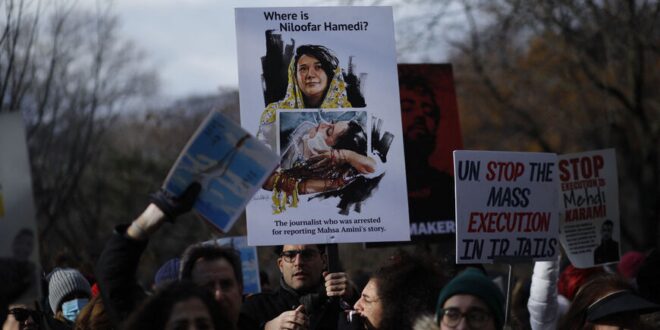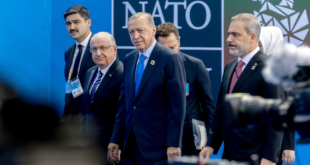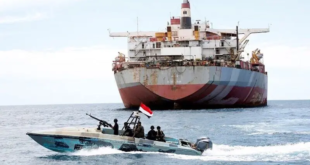The foreign ministers of the European Union have adopted an eighth round of sanctions against Iranian individuals and entities responsible for serious breaches of human rights.
Following the execution of three Iranian protesters in Isfahan last week, the Council of the European Union adopted sanctions against additional five individuals and two entities held responsible for serious breaches of human rights in Iran.
Last Friday at dawn, Iran executed Saleh Mirhashemi, Majid Kazemi and Saeed Yaqoubi, who were sentenced to death for their alleged involvement in a shooting attack that killed three security personnel in Isfahan in November 2022. According to Amnesty International, the three men were tortured, forced to make incriminating statements and subjected to unfair trials. Four other protesters have been executed by Iran in the past few months.
According to a May 12 report by Human Rights Watch, since late April, Iranian authorities have executed at least 60 people including Iranian-Swedish dual national Habib Chaab. Many of them were executed after unfair trials for drug offenses and there were two executions for blasphemy. On Saturday, Iran executed a man convicted of masterminding a prostitution network and drug trafficking.
Individuals sanctioned
The five people added to the EU sanctions list Monday are Tehran police commander Adinehvand Salma, Secretary of the Supreme Council of Cyberspace of Iran Aghamiri Seyyed Mohammad Amin, Public Prosecutor of Sirjan Nikvarz Mohsen, Deputy Supervisor of Public Spaces of the Public Security Police Moradi Nade and police spokesperson Montazer al-Mahdi Saeed. The EU statement highlighted the role played by Nikvartz in the case of Maryam Arvin, a defense lawyer for protesters who was herself arrested and tortured in prison.
The two entities sanctioned are the Student Basij Organization, which acts as the IRGC’s violent enforcer on university campuses, and the IRGC Cooperative Foundation, which has been at the forefront of the crackdown on protests in Iran since September 2022. The EU statement highlighted the role played by the IRGC Cooperative Foundation in managing the investments of the IRGC and funneling money into the regime’s brutal repression activities.
With these new sanctions, the EU list of restrictive measures against Iran includes 216 individuals and 37 entities. These measures consist of asset freezes, travel bans from the EU and a prohibition on making funds or economic resources available to those listed. They also ban exports to Iran of equipment that might be used for internal repression or for monitoring telecommunications. It is the eighth round of EU sanctions against Iran on the backdrop of human rights violations since October 2022, when protests broke out in Tehran.
Reiterating its support for the aspirations of the Iranian people and the necessity to respect their human rights, the European Union stated that Iran must end the use of the death penalty for protesters and ensure due process for detainees. It added, “The EU also calls upon Iran to end the distressing practice of detaining foreign civilians with a view to making political gains.’’
On Sunday the Iranian Foreign Ministry summoned Swiss ambassador to Tehran Nadine Olivieri Lozano for reprimand over a tweet by the embassy on Friday condemning the execution of the three protesters and urging Iran to stop executions and reduce use of the death penalty.
 Eurasia Press & News
Eurasia Press & News




